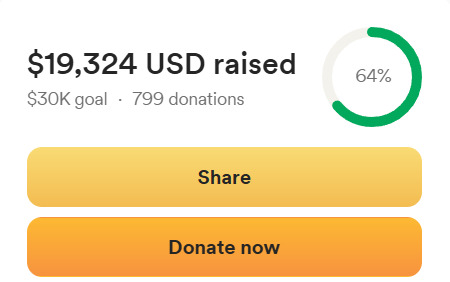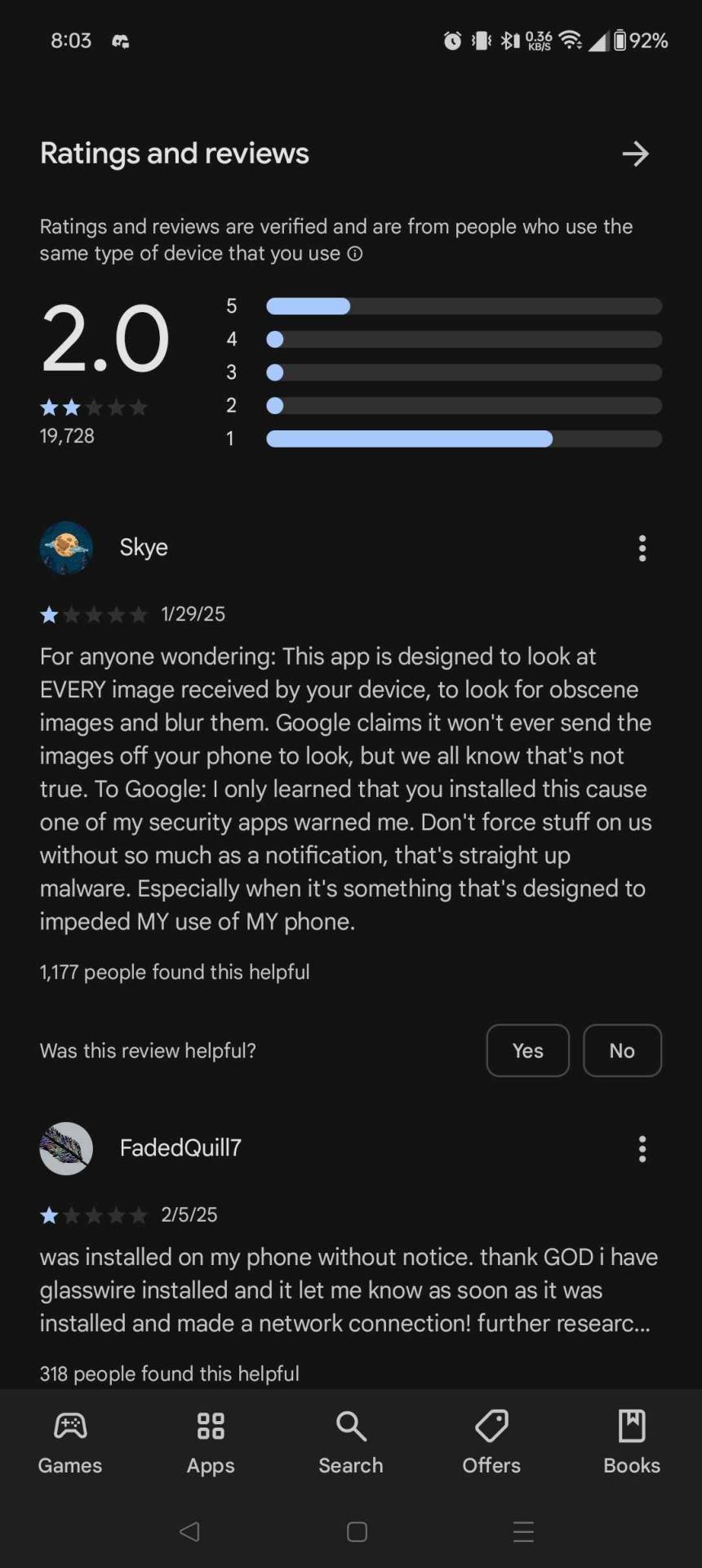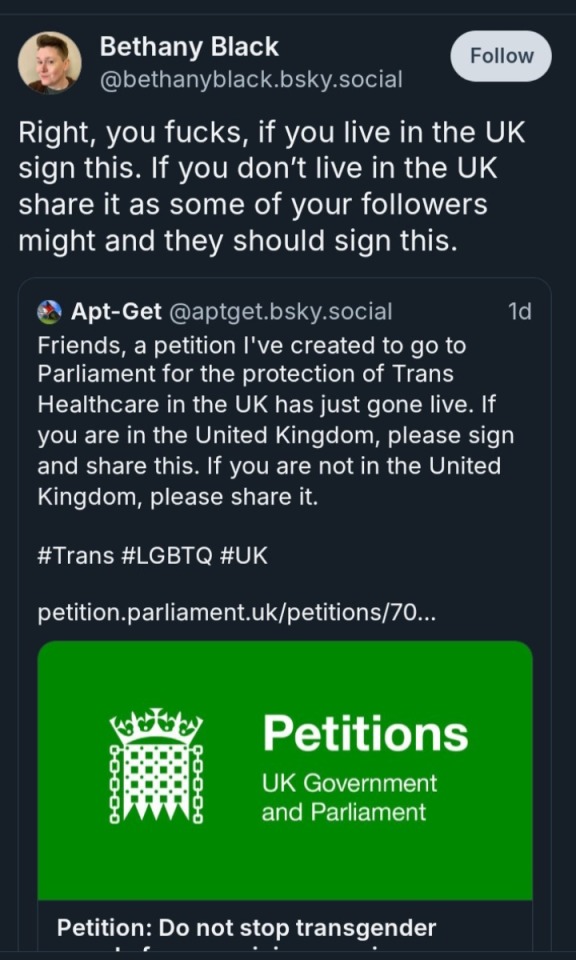Hello! Here you can expect occasional posts regarding technology and its impacts, more on the sides of security and web technologies, as well as personal grievances. I also post some projects I feel like sharing for any to see, as well as other posts that may not fit into any particular category. Also includes some attempt at some professionality.^[[B# Do not let the occasional reblogs of Popplio, Brionne, Primarina, and some other Pokémon offset you.
Don't wanna be here? Send us removal request.
Text
⚠️‼️ DON’T IGNORE THIS – A FAMILY NEEDS YOU NOW ‼️⚠️

We have collected $19,137 raised of $30,000 !��🇸
You can donate through of the following link:
gofundme 👈👈👈
Even $20 will make a big difference and save us!
🔗 🔗 Gofundme link for donations 👇👇👇👇🔗 🔗
This was our home… now it’s gone
youtube
🇵🇸 save family lost their home ,dreams and everything in Gaza 🇵🇸
This is my home before the war and after the war how it became💔💔💔
Before: After:




💔 I never thought I’d write something like this… But we’ve truly lost everything.
We had a simple home — nothing fancy — but it was ours. Filled with laughter, memories, and years of hard work. Then, in one moment, it was all gone. Our home was bombed. Reduced to rubble.
Since then, we’ve been moving from place to place. No stability. No privacy. No safety. Just trying to survive each day.
We also lost our jobs. Our source of income. Our sense of normal life. We’re not living — we’re barely getting by.
This isn’t easy to share. But we’re asking, with all humility, for your help.
We are asking you with all shame to support and stand by us in these difficult circumstances that everyone knows because we lost our home, our work and any stable source of income. Thank you all.
We have been through many wars before, but this war was not like the ones before it. Our lives were turned upside down. We became displaced from one place to another. We are the Anas family, residents of northern Gaza, specifically in the Shujaiya area. In the first week of the war, we fled our home because everyone considered our home to be in a dangerous area. We moved to the Rimal area, specifically in the middle of Gaza. There, we received the news that our home, which contained all our beautiful memories, was bombed. Suddenly, it was gone!!! Just thinking that your home, which you worked hard on and built from scratch and took a lot of your life, was gone in less than a second ! After a while, we left the sands to the Al-Zawaida area because of the heavy shelling. We stayed there for about two weeks, and then the terrorist army asked us to go to Rafah. We actually fled for the fourth time to Rafah and stayed there for two months, some of the most difficult days of our lives, as there was no way or means to live a normal life. 😔😔
You can also donate through this link:
Please, we are in dire need of you and your support. If you cannot donate, you can share☹️❤️🥹
Even $10 will make a big difference and save us!
Verified by : @nabulsi
You can donate through any of the following links:
1-gofundme
2-chuffed.org


128K notes
·
View notes
Text
BAN ON CONVERSION PRACTICES IN THE EU. GO SIGN IT. DEADLINE IS FUCKING MAY 17. WE'RE STILL MISSING 800.000 signatures. FUCKING DO IT.
45K notes
·
View notes
Note
A big reason why he was enabled again is because of racism. Americans, especially collectively the demographic that has the most political power, voted for the overt racist and sexist, instead of the vewy-scawy Black woman.
That demographic literally deemed the betterment of non-white lives unimportant compared to the false promise of lower grocery prices.
The white supremacy was shown live when he was very belligerent toward Zelenskyy, and acted as if Zelenskyy himself was the unreasonable one.
https://h-i.social/@are0h/114084329081161396
Racists that willingly voted for him and knew of his dehumanising policies have given away their empathy, soul, and humanity.
I'm only saying this for your sake, but objectively, it's not a smart idea to bring politics into normal hobbies. You might lose supporters of your blog just because of your political stance, and that would be terrible since you're so amazing!! It's only a suggestion, but I really reccomend not bringing politics into anything.

194K notes
·
View notes
Text
Just reminder:
Fuck ICE
Death to Trump and his billionaire buddies
Always punch Nazis
19K notes
·
View notes
Text








Tux the Penguin by Animation Factory
180 notes
·
View notes
Text
don’t worry you can trust THIS gofundme because it was vetted by a tumblr blog you’ve never heard of that is almost identical to the ones posting the ebegging link
8K notes
·
View notes
Text
This was described as just like when Apple tried to do something very similar.
I personally believe Google would eventually send images off your phone for "safety" reasons, especially since they are okay with renaming that body of water like that.
hey folks if you have an android phone: google shadow installed a "security app".

I had to go and delete it myself this morning.
96K notes
·
View notes
Note
I see a lot of people recommending moving to signal proactively for normal texts. Does this make sense from a security perspective?
yes
8K notes
·
View notes
Text
Last reblog: If you are going to complain about a tech-oriented Tumblr blog appearing so political, you better have some damn good explanation for why the fuck the words "master" and "slave" are acceptable terms in computing. Oh wait, there shouldn't even be any valid explanation. 🖕
1 note
·
View note
















